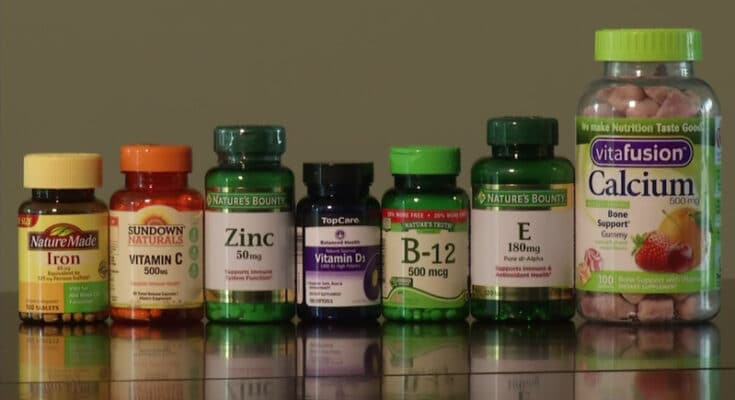In the hustle and bustle of modern life, it’s easy to overlook the impact of our dietary choices on our health. Vitamins, those essential micronutrients, play a crucial role in maintaining our well-being. But what happens when our bodies lack these vital elements? In this article, phpbms dive deep into the world of vitamin deficiency symptoms, uncovering the signs that our bodies give us when they’re craving these essential nutrients.
Vitamins are the unsung heroes of our bodies, working silently but effectively to keep our systems running smoothly. From aiding in energy production to supporting immune function and promoting healthy skin, these tiny nutrients hold immense power. However, when we don’t give them the attention they deserve, our bodies let us know through various deficiency symptoms.
The Role of Vitamins in Our Body
Imagine vitamins as the gears in a well-oiled machine; each plays a specific role in maintaining our health. Vitamin A, for instance, is essential for good vision and a strong immune system, while the B vitamins help convert food into energy and keep our nerves healthy. Vitamin D partners with calcium for strong bones, and vitamin E acts as a potent antioxidant, protecting our cells from damage.
Common Types of Vitamin Deficiencies
Vitamin D Deficiency
The “sunshine vitamin” deficiency can cast a shadow on our health. A lack of vitamin D can lead to brittle bones, a weakened immune system, and even mood disturbances.
Vitamin B12 Deficiency
Vitamin B12, often found in animal products, is vital for nerve health and red blood cell formation. Its deficiency can result in anemia, fatigue, and nerve damage.
Vitamin C Deficiency
Scurvy, once a dreaded sailor’s disease, is caused by a lack of vitamin C. This antioxidant vitamin is essential for wound healing, healthy skin, and strong immunity.
Recognizing General Vitamin Deficiency Symptoms
Our bodies are skilled communicators, and they send out distress signals when something isn’t right. Here are some general symptoms to watch out for:
Fatigue and Weakness
Feeling excessively tired and weak, even with sufficient rest? This could be your body’s way of saying it needs more vitamins.
Brittle Hair and Nails
Do your nails chip and hair break more than usual? Your body might be signaling a lack of certain vitamins that contribute to healthy skin, hair, and nails.
Skin Issues
From dryness to unusual rashes, our skin often reflects our inner health. Vitamin deficiencies can manifest as various skin problems.
Specific Vitamin Deficiency Symptoms
Let’s delve into specific symptoms related to certain vitamin deficiencies:
Night Blindness (Vitamin A)
Struggling to see in low light? This could be due to a lack of vitamin A, which is crucial for good vision, especially in dim conditions.
Muscle Cramps (Vitamin D)
Vitamin D deficiency might lead to painful muscle cramps, indicating its role in maintaining muscle health.
Mouth Ulcers (Vitamin B12)
These small but painful ulcers could be your body’s way of telling you that it lacks sufficient vitamin B12.
Impact on Immune System
Vitamins and immune health go hand in hand. A deficiency weakens your immune response, leaving you more susceptible to infections.
Connection Between Diet and Deficiency
Your diet plays a pivotal role in preventing deficiencies. A balanced, varied diet ensures you get a range of vitamins from different sources.
Diagnosing Vitamin Deficiencies
Blood tests and physical examinations are used to diagnose deficiencies accurately, enabling timely intervention.
Prevention and Treatment
Dietary Adjustments
Amending your diet to include vitamin-rich foods can effectively prevent and even reverse deficiencies.
Supplements
In some cases, supplements are recommended to bridge the gap between what you get from your diet and what your body needs.
Balancing Act: Can You Have Too Much?
While vitamins are essential, excessive intake can lead to toxicity. Moderation is key.
The Role of Sunlight in Vitamin D Synthesis
Sunlight triggers the production of vitamin D in your skin. Spending time outdoors can help maintain healthy vitamin D levels.
Vitamins for Different Life Stages
Different life stages have varying vitamin requirements. Pregnancy, childhood, and old age all come with unique needs.
Myth-busting: Separating Fact from Fiction
There’s a lot of misinformation about vitamins. It’s essential to consult reliable sources and healthcare professionals for accurate information.
Promoting Public Health Awareness
Raising awareness about the importance of vitamins and their role in maintaining good health is crucial for overall public well-being.
Conclusion
Vitamin deficiency symptoms are our body’s way of communicating its needs. By paying attention to these signals and adopting a balanced diet and healthy lifestyle, we can ensure our bodies get the nourishment they require for optimal functioning.
Unveiling the Wonders of Vitamin A: Everything You Need to Know
FAQs
- Can I get enough vitamins from my diet alone?
- While a balanced diet is the best way to obtain vitamins, supplements can help fill gaps if needed.
- Are vitamin supplements safe for children?
- Consult a pediatrician before giving supplements to children to ensure proper dosages.
- Can vitamin deficiency be reversed?
- In many cases, adjusting your diet and taking supplements as recommended can reverse deficiencies.
- Is natural sunlight exposure sufficient for maintaining vitamin D levels?
- Depending solely on sunlight can be challenging; dietary sources and supplements might be necessary.
- Are all vitamin supplements equally effective?
- Not all supplements are created equal; quality and proper dosage matter. Consult a healthcare professional before choosing supplements.




